Is Social Media Consuming Your Life? Let’s Talk About Digital Wellbeing
How much time do you spend on social media? When I asked, many of you said too much.
Does that sound like you? Is social media taking up too much of your life?
I’m Jennifer van Alstyne (@HigherEdPR). Welcome to The Social Academic blog where I share articles on managing your online presence. I also feature grad students, professors, and scientists like you.
In this article, I talk about what to do when you feel like social media is consuming your life. When I asked, you said you feel like you’re
- checking social media too much
- spending too much time on social media overall
Then get my top tips for how to be on social media less. Changing your habits on social media takes time, and works differently for everyone.
Subscribe to The Social Academic blog.
The form above subscribes you to new posts published on The Social Academic blog.
Want emails from Jennifer about building your online presence? Subscribe to her email list.
Looking for the podcast? Subscribe on Spotify.
Prefer to watch videos? Subscribe on YouTube.
Ask yourself these 3 questions about social media
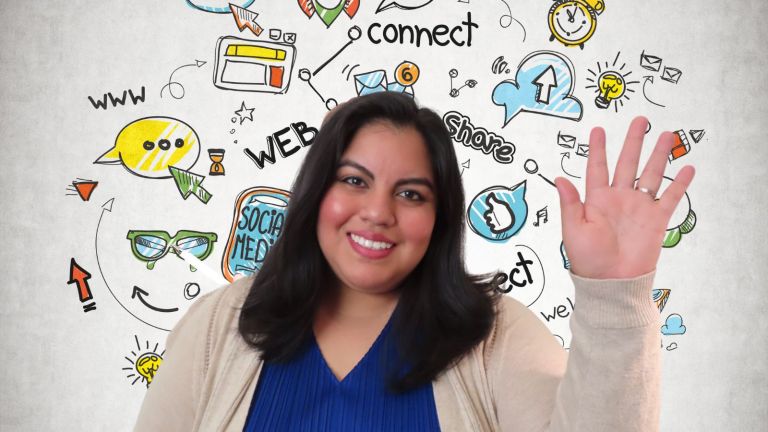
Thinking about how we feel about social media helps us make better decisions about how we spend our time. Thinking about yourself can be uncomfortable for some people, so I’ve come up with 3 questions to help.
- Are you spending too much time on social media?
- Why do you enjoy social media?
- What do you dislike about social media?
1. Are you spending too much time on social media?
Echo Rivera, PhD is a friend, and member of my social media course. When she asked me, ‘What do you do when you feel like social media is consuming your life?’ I knew it was something I had to write about for The Social Academic.
You see, Echo used to love social media. It’s something we talked about when I featured her on the blog in 2019: “I’m pretty much checking Twitter before even getting out of bed.” She thought she was happy with her social media usage.
After reading Digital Minimalism by Cal Newport (2019), Echo realized she was struggling with deep work. She remembered being able to work on her thesis for 4+ hours at a time. Then during her dissertation, she was able to do about 2+ hours of deep work.
“Somewhere along the way, I lost that ability,” Echo said, “I felt scattered, distracted, and overwhelmed. I could only write for 20 minutes at a time, and what I did write was disorganized and confusing. I thought it was stress and anxiety over COVID-19.”
Digital Minimalism suggested the inability to deep work might have to do with the mental residue leftover from social media use. If you’re on Twitter for 15 minutes, you will still think about it once you’ve gotten off. Caitlin Faas, PhD says, “your brain paid attention. And then it has to come back.”
When Echo looked at how she was using social media over time, she recognized a pattern with her Twitter use. The times she was able to do deep work effectively were ones she was using Twitter less or not at all.
“Here’s what my Twitter usage started to look like: I would check Twitter every time I took a break from deep work. If I got up to get another cup of coffee, I’d check Twitter. If I needed a break from my desk, I’d walk around the house while checking Twitter. When my partner was making dinner, I’d be on Twitter. When my partner let the dogs out at night, I’d check Twitter.”
Echo Rivera, PhD
Recognizing her issue was the 1st step to change. We’ll get back to how Echo made those changes later.
Like many Americans, I’m on social media every day. Even though I have push notifications turned off, I check the platforms I use multiple times a day.
I took a look at my Digital Wellbeing stats (pictured), a newer feature on Android phones. These stats give you insight into how you’re using your phone. Apple users, iOS has Screen Time which has similar reports.
I noticed I spent more time on Facebook than any other app. This surprised me. If you asked me which social media platform is your favorite? I would have said Instagram.

But my Digital Wellbeing weekly report told me I spent upwards of 1 hour each day on Facebook. I had to stop and think: do I want to be spending so much time there?
Digital wellbeing stats, and iOS’ Screen Time, help you
- see how you spend your time
- set limits
Irina Anna Rose, PhD, an intercultural communications and diversity specialist said, “I finally found this setting in my phone where I can limit what apps are active [in the Digital Wellbeing settings]. I first used it when I wanted hide from the news during the election week, and now I use it intermittently on a daily basis.”
How much time are you spending on social media? Are you okay with that amount of time?
I asked my Twitter, Instagram, and Facebook audiences how they felt about the time they spent on social media. I asked them, do you feel like you spend…
- Way too much time on social media
- More time than you’d like
- An okay amount of time
Most people said they spent way too much time on social media. Does that sound like you?
I was spending more time on social media than I wanted to. It was more time than I usually spent. First, I had to ask myself why. Why did my social media use increase? I was on social media, and Facebook in particular more than usual because of
- Coronavirus
- The 2020 USA election
- More keeping in touch with friends and family
There are many reasons you might feel you’re spending too much time on social media. Here are a few I’ve come across.
- Fear of missing out (FOMO)
- Too many notifications, or checking all the time
- Having a hard time getting off social media once you’re on
How much time you spend on social media is not as important as how you feel about that time.
Ask yourself
- how you feel about social media
- and, why will help you take steps towards positive change
Subscribe to The Social Academic blog.
The form above subscribes you to new posts published on The Social Academic blog.
Want emails from Jennifer about building your online presence? Subscribe to her email list.
Looking for the podcast? Subscribe on Spotify.
Prefer to watch videos? Subscribe on YouTube.
2. Why do you enjoy social media?
I love a lot of things about social media like
- How it brings us together
- Keeping in touch with friends and family
- Meeting people around the world
- Being able to share my writing
- Having conversations with people
There are a lot of reasons I enjoy social media personaly. I want you to think about your reasons.
Why do you enjoy social media?
If there’s nothing you like about social media, that’s okay. It’s probably not for you. While you may get benefits from a LinkedIn profile, I tend to recommend people who don’t like social media don’t spend time there.
Most people on social media do enjoy something about it. Many like the community aspect, and being able to keep in touch.
Think about what you do like. This will help you know how you most like to engage on social media.
3. What do you dislike about social media?
Social media platforms all have faults. There are improvements that need to be made. There are serious privacy issues social media users must consider.
What you dislike about social media is different for everyone.
You might have anxiety about social media.
Some people don’t like the company or corporation that owns social media platforms (i.e. Facebook).
Maybe you are against a policy or terms the platform uses.
Or, you are unsure or don’t like how your data is being used.
For some, seeing a particular person or topic can be anxiety-provoking.
Not getting enough likes on your post can be overwhelming.
So can experiencing negative reactions on social media.
Echo struggled with the inability to do deep work. She felt “scattered.”
I don’t like that yesterday I unlocked my phone 39 times. I didn’t want to think about picking up my phone that many times in a day. Then I read about how Americans pick up their phone 96 times each day. While I’m glad that’s not me, I still want to use my phone less.
Margaret Breidenbaugh, a researcher in modern German social history, said “I have trouble separating social media from the rest of my workflow. Whether I’m researching or blowing off steam, it all happens on the same few devices. I’m always just one tap or click away from another time suck.”
I think a lot of people feel that way. Margaret described the ‘suck’ as ‘mindless endless scrolling.’ The problem it caused was that it was easy to get distracted when using the same tools for work and research.
Margaret said, “The more time I spend scrolling, the less time I’m actively pursuing next steps in my research, writing, and publishing projects.”
Natalie M. Griffin, PhD is in literacy studies and finds social media can be a distraction. “I catch myself going to the apps when I’m unmotivated and it’s a huge distraction from the work I need to do. I will delete [social media apps] in order to force myself to do the work.”
What do you dislike about social media?
Figure out what matters to you: what you dislike and want to change.
I asked my social media audiences why they spent too much time on social media. I wanted to know if they felt it was
- Too many times per day
- Sessions were too long
Most people said both.
That makes sense. Social media engineers designed platforms that would engage you often, and try to keep you engaged. They talk about this in the recent Netflix documentary The Social Dilemma (2020). The guy who invented the like button totally regrets it now.
Studies have shown how addicting social media can be. Keep reading to get my tips on how to be on social media less.
Subscribe to The Social Academic blog.
The form above subscribes you to new posts published on The Social Academic blog.
Want emails from Jennifer about building your online presence? Subscribe to her email list.
Looking for the podcast? Subscribe on Spotify.
Prefer to watch videos? Subscribe on YouTube.
How to stop procrastinating on social media
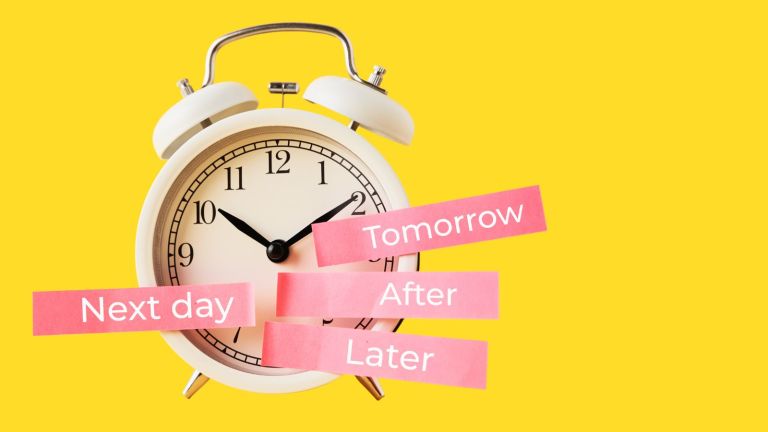
Caitlin Faas, PhD joined me live on YouTube to talk about procrastination and social media. If you find your social media time is getting in the way of your projects, it’s time for a change.
“Procrastination. We all know it when we’re avoiding something we need to do,” Caitlin says. “You have a task and you know you need to do it. It might be grading papers, writing that book, following up with someone. And you’re avoiding it.”
Do you use social media to procrastinate? Watch our conversation on YouTube (there are chapters to help you find the part most relevant to you).
Here are some proven ways to be on social media less

Do you want to spend less time on social media? Here are 5 tips to help.
- Turn off your notifications
- Check-in with yourself
- Set rules or boundaries
- Schedule your posts
- Take a break
Turn off your notifications
Notifications for social media make us check our phones much more than we need to. Turn off any unnecessary notifications. Or, turn off all of them.
Novelist and professor, Steven Dunn, said he keeps all notifications off his phone. Even email.
Look at your notification settings on each app to decide what’s right for you.
Check-in with yourself often
How you feel about social media will change over time. Check-in with yourself every few months.
What do you like about social media?
What don’t you like?
Irina Rose, PhD said, “I often ask myself: what do I get out of looking at my timeline? It helps when I’m honest with myself: am I looking for approval, distractions, information, or something else?”
Are you connected with the people you want to be? Irina asks herself, “would I engage in a discussion with this person in real life, say if I ran into them on a street?”
Checking in with herself helped Irina make decisions about when to respond. She said, “I basically stopped participating in trends. I watch them happen, but I don’t engage. I don’t feel a genuine, purposeful reason to engage.”
You might also ask yourself if there’s a particular project coming up you need to prioritize.
Natalie M. Griffin, PhD says, “I delete apps if I have a lot of deadlines approaching and I feel like I’m spending too much time on social media apps.”
Set rules or boundaries
Do you feel like you get caught in endless scrolling? I don’t really like the term doomscrolling, but it’s been appropriate in 2020.
Do you have a hard time getting off social media?
Setting some rules our boundaries might be a good idea for you.
I have a rule for myself about how I spend my time. I know how easy it is to just keep scrolling.
This rule helps me get off social media when I’m not doing anything:
Jennifer’s Rule: If you haven’t engaged with someone in a meaningful way in the last 10 minutes, it’s time to put down the phone.
I know people who schedule their time on Twitter as breaks throughout the day.
A friend only uses Twitter after work, not before so it doesn’t distract her throughout the day.
Many choose to use social media only on their desktop, like Echo removing apps from their phones.
I set a timer for myself for 30 minutes in my Digital Wellbeing settings that closes my social media apps when I reach my limit.
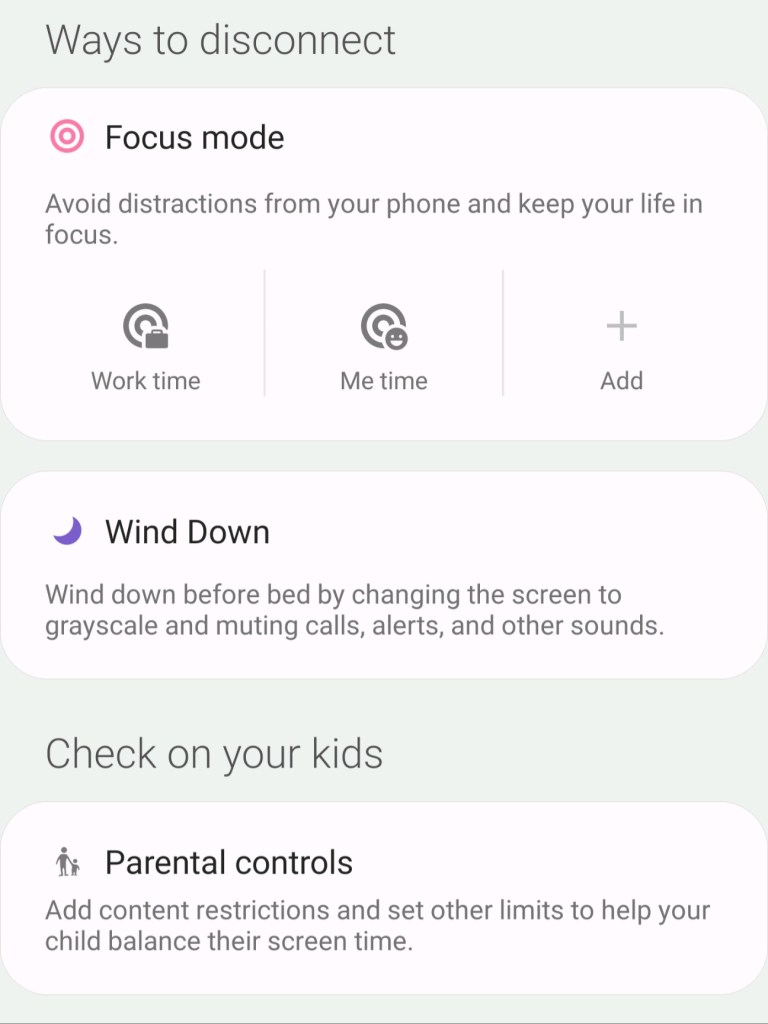
Android’s Digital Wellbeing settings have ways to help you disconnect:
- App timers
- Focus Mode
- Wind Down
When I recognized that I have a hard time staying off my phone late at night, I tried the Wind Down feature.
This setting mutes notifications and alerts. My favorite feature is that it changes the screen to grayscale, which makes it much less engaging.
Caitlin Faas, PhD says “I put containers around myself. Or kindly put, I say, ‘stay in this sandbox and don’t get out.’ That might be deletion of apps on my phone, time restricted, simplified account following, etc. The container changes based on what I need for the week / month / year.”
Implement rules and boundaries based on your needs.
Schedule your posts
Scheduling your social media posts in advance can help you be more engaged when you are on social media. You don’t have to be on your phone at a certain time to share a post.
There are other benefits to scheduling some social media posts in advance. Let’s say you have an upcoming presentation. You can schedule posts about your talk ahead of time. That way, you don’t have to think about it closer to the event (when you might be busy).
I use Buffer Publisher, a social media tool, to help me schedule content to go out over time.
Scheduling gives me the freedom to write when I want. It helps me focus on engaging in conversations when I am on social media myself. So that when you reply to my post, I have time to respond.
Take a break
Social media breaks can happen as often and for however long you need. I have a whole guide to how to take a break from social media for you.
Basically, as long as you communicate that you’ll be gone, social media breaks can be as long as you want. And, there’s no limit on how much time off from social media you can take.
Changing your habits and digital wellbeing
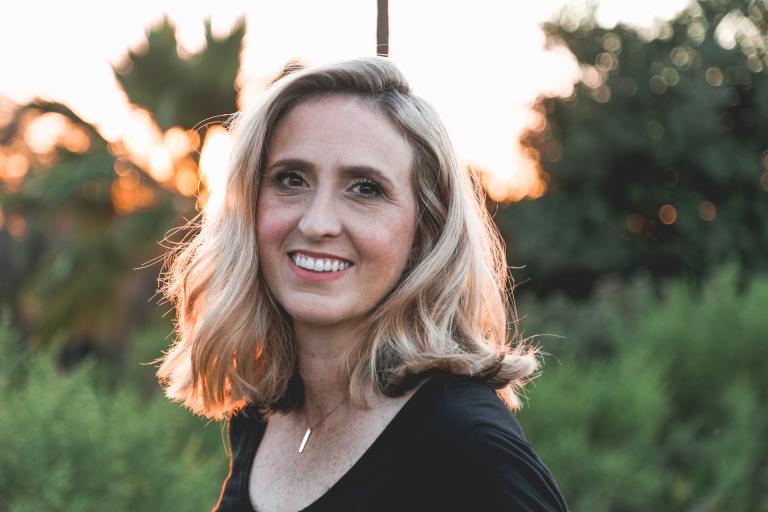
Changing your habits on social media can be hard. The 1st step is understanding why change needs to happen. Is social media taking over our lives?
Check-in with yourself by asking these 3 questions
- Are you spending too much time on social media?
- Why do you enjoy social media?
- What do you dislike about social media?
These are some ways to be on social media less.
- Turn off your notifications
- Check-in with yourself
- Set rules or boundaries
- Schedule your posts
- Take a break
Sometimes, it’s more serious. If your anxiety is overwhelming, it’s time to take a step back.
You may need an extended break from a platform. Or you may need to be off social media altogether.
There isn’t a right answer for everyone.
So how did Echo do it? Echo Rivera, PhD took advice she found in Digital Minimalism by Cal Newport and started experimenting with how she used social media. Here’s the rundown of changes she made:
- Removed Twitter and LinkedIn from her phone. Echo only checks these social media platforms in a browser during business hours.
- Stopped searching for conversations to join (a tip from me!). Now, Echo approaches social media as a way “for others to reach me and respond to conversations,” like when someone tags her.
- Stopped tweeting “stream of consciousness”
The book suggests building real relationships and finding fulfilling hobbies. Echo picked up
- a forgotten cross-stitching project
- a new hobby: acrylic painting
- fiction reading
The most interesting part? Not checking Twitter all day meant Echo was more bored than usual. And, that wasn’t a bad thing. She said she “[I] forced myself to just sit there, being bored, instead of grabbing something to distract me constantly.” Now she’s started to enjoy those 5-10 minute breaks.
I loved this because over the summer I watched Hyori’s Bed and Breakfast (2017-2018). The hosts, musicians Lee Hyo-ri and Lee Sangsoon have time in their day for spacing out. Sangsoon sits on his chair on the porch in the sun, and feels he needs that time each day.
It was eye-opening for me, and I too have come to enjoy being bored. Doing nothing has been a great time to think, explore, dream. Being more intentional with social media helped Echo find enjoyment in this boredom.
More than that, Echo found significant improvement with the thing she was struggling with: the inability to do deep work.
“I could not believe how fast I saw improvement in my ability to concentrate. I felt clear headed. I was able to organize my thoughts. I wrote my first detailed blog post in months! I even drew cartoons/visuals for that blog post, which is something I haven’t had the mental energy to do for years. I revamped my website, training webinars, and other content. It only got better from there.”
Echo Rivera, PhD
It only took a week for Echo to see change. Before she was able to write for about 20 minutes, now 2+ hours. “Because I drastically changed my social media usage, I found the energy, clarity, and joy that had been missing this entire year,” she said.
Margaret Breidenbaugh wanted to see what people were doing on social media, but found herself “feeling numb.”
“Sometimes I can pull away, but other times I feel compelled to see what other people are doing. Are their lives just as filled with distractions, or do they seem to have better focus? What does success look like in not only the age of social media, but also during a global pandemic? Is it even fair to measure ourselves against others, let alone against our previously-held beliefs about our own abilities/limitations? I think that each time I fall prey to scrolling, I set out to be inspired by the endless stream of photos, stories, videos, but end up feeling numb.”
Margaret Breidenbaugh
Margaret had been dreaming about the people on social media. Taking a break from Facebook and “snoozing the accounts of people who keep coming to my brain while asleep” helped. When we talked, Margaret said the dreams had stopped.
There are still changes to be made. Margaret said, “My next strategy will be muting Twitter hashtags and accounts that tend to suck me in, whether positive or negative.”
Subscribe to The Social Academic blog.
The form above subscribes you to new posts published on The Social Academic blog.
Want emails from Jennifer about building your online presence? Subscribe to her email list.
Looking for the podcast? Subscribe on Spotify.
Prefer to watch videos? Subscribe on YouTube.
Your online presence shouldn’t take all of your time
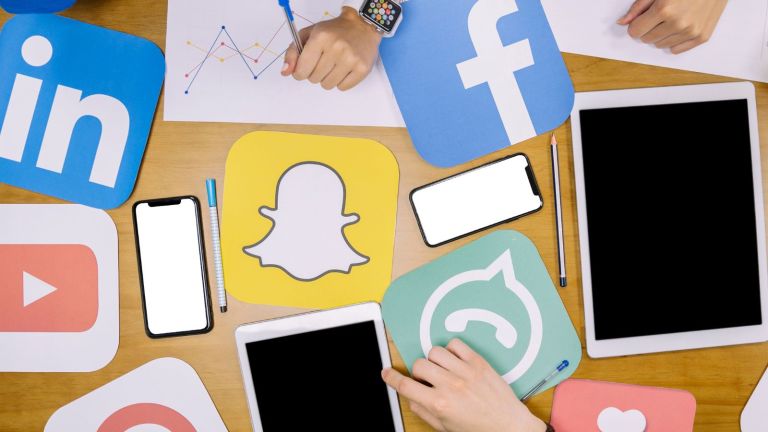
Being present on social media doesn’t mean it should be every day. That just doesn’t work for most professors. You’re busy.
Fear of missing out (FOMO) stops people from checking in with how they really feel about the time they’re spending. That’s why I wrote this article, so I hope it’s helped you.
If you’re struggling with something I haven’t mentioned, I’d love to hear from you. I hope you’ve found this article helpful! Let me know in the comments.
In-depth social media training helps you use your time most effectively on social media. Discover the best ways share your academic life online in my self-paced course.
Jennifer van Alstyne View All →
Jennifer van Alstyne is a Peruvian-American poet and communications consultant. She founded The Academic Designer LLC to help professors build a strong online presence for their research, teaching, and leadership. Jennifer’s goal is to help people feel confident sharing their work with the world.
Jennifer’s personal website
https://jennifervanalstyne
The Academic Designer LLC
https://theacademicdesigner.com

1 Comment Leave a comment ›